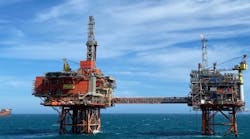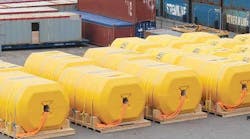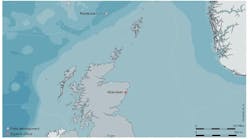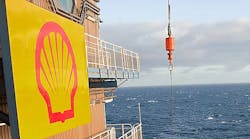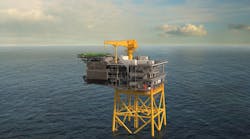Scottish court overturns UK’s approvals for two North Sea oil and gas fields
By Bruce Beaubouef, Managing Editor
A Scottish court has overturned the UK Government’s approvals for two North Sea oil and gas projects, marking a victory for environmental groups and necessitating a fresh review by the government.
In a landmark decision, the Court of Session in Edinburgh ruled that the UK Government’s approval of Shell’s Jackdaw project and Equinor’s Rosebank project was unlawful, as reported by Reuters and the New York Times.
The court found that the decision-making process failed to account for the downstream emissions associated with the use of the extracted oil and gas.
In a written ruling, Judge Andrew Stewart said: “The public interest in authorities acting lawfully and the private interest of members of the public in climate change outweigh the private interest of the developers.”
The ruling allows Shell, Equinor and Ithaca Energy to continue work on the Jackdaw and Rosebank projects, respectively. However, they are barred from extracting oil and gas until the government reassesses the approvals.
The court’s decision follows a UK Supreme Court ruling last year which mandated that planning authorities consider the full climate impact of fossil fuel projects, including the burning of extracted fuels.
In response to this precedent, the UK Government chose not to contest the legal challenges brought by Greenpeace and Uplift.
The UK government has indicated that it is revising environmental guidelines and that the companies may reapply under the new regulations.
Setting those parameters will be no easy task. New projects are needed to sustain an industry that is still a major employer and supplier of fuel. But if the guidelines are seen as generous to the oil industry, they are likely to prompt more litigation.
Ithaca Energy, a minority partner in Rosebank, argued in the case that suspension of the project “would affect the international perception of the UK, including its reputation for inward investment.”
But Judge Stewart did not seem to be persuaded by that argument. “The public interest in authorities’ acting lawfully and the private interest of members of the public in climate change outweigh the private interest of the developers,” he said in his ruling.
Shell is developing the Jackdaw gas field, which expected to supply fuel for 1.4 million homes. Equinor and Ithaca Energy are working on the Rosebank oil and gas field. All three companies stressed that the projects are crucial to Britain’s energy security, with delays causing significant financial losses and job cuts.
The Rosebank and Jackdaw projects are seen as tests for the flagging British oil industry because of their size and because Shell and Equinor are two of Europe’s largest energy companies. Jackdaw was expected to begin producing in 2026, while Rosebank was scheduled to come online in either 2026 or 2027.
The oil companies welcomed the judge’s concession that allowed them to proceed with some work, but Shell issued a reminder of how much was at stake.
“We have spent more than £800 million since the regulator approved Jackdaw in 2022,” Shell said in a statement. “Swift action is needed from the government so that we and other North Sea operators can make decisions about vital UK energy infrastructure.”
Equinor reportedly said that it was pleased with the outcome “which allows us to continue with progressing the Rosebank project while we await new consents.”
Equinor said it had already lined up £2.2 billion in contracts for Rosebank, a large oil field with an estimated 300 million barrels of oil and gas. The energy giant said it planned to invest £10 billion in Britain in the next few years, with much of that going to the wind and carbon capture industries that the British government was promoting.
Offshore Jackdaw and Rosebank projects in the news:
About the Author
Bruce Beaubouef
Managing Editor
Bruce Beaubouef is Managing Editor for Offshore magazine. In that capacity, he plans and oversees content for the magazine; writes features on technologies and trends for the magazine; writes news updates for the website; creates and moderates topical webinars; and creates videos that focus on offshore oil and gas and renewable energies. Beaubouef has been in the oil and gas trade media for 25 years, starting out as Editor of Hart’s Pipeline Digest in 1998. From there, he went on to serve as Associate Editor for Pipe Line and Gas Industry for Gulf Publishing for four years before rejoining Hart Publications as Editor of PipeLine and Gas Technology in 2003. He joined Offshore magazine as Managing Editor in 2010, at that time owned by PennWell Corp. Beaubouef earned his Ph.D. at the University of Houston in 1997, and his dissertation was published in book form by Texas A&M University Press in September 2007 as The Strategic Petroleum Reserve: U.S. Energy Security and Oil Politics, 1975-2005.

